Brazil's "Mini-Tennis" Mania: Pickleball Explodes from Elite Clubs to Public Courts
What's the Score?
Pickleball is experiencing a significant surge in popularity across Brazil, rapidly transitioning from a niche interest to a mainstream sporting phenomenon. Celebrities, former tennis professionals, and everyday enthusiasts are embracing this "mini-tennis" game, leading to the establishment of the country's first professional league, Liga Supremo, and a growing presence in both high-end clubs and public recreational spaces. With prize money on offer and a burgeoning community, pickleball is touted by some as the future of racquet sports in Brazil.
Hit it deeper!
The pickleball wave in Brazil is being fueled by several factors. The sport's inherent accessibility, often described as a simplified version of tennis with elements of ping-pong and badminton, appeals to a wide range of ages and fitness levels. Roberto Justus, a prominent Brazilian businessman and former tennis player, exemplifies this shift, stating he has "given up tennis" for pickleball, drawn to its enjoyable, dynamic, and easier gameplay on a smaller court with a lighter ball. This sentiment is echoed by Ilza Trevisan, a 68-year-old player who found pickleball more manageable than tennis or beach tennis due to the reduced court size and slower pace.
The sport's origins in the United States in the 1960s and its later introduction to Brazil are gaining recognition. Initially introduced through individual efforts and gaining traction in places like Praia Grande (SP) and Governador Valadares (MG), pickleball's growth accelerated, particularly after 2020, with Brazilians returning from the US bringing their newfound passion for the game. The involvement of influential figures like José Eduardo “Mado,” who actively promoted the sport in clubs, resorts, and public spaces like Parque Ibirapuera, further catalysed its spread.
The establishment of Liga Supremo de Pickleball in 2025 marks a significant milestone for the sport in Brazil. This professional league has already contracted 26 professional athletes and will distribute R$ 2 million in prizes across 12 tournaments in its inaugural season. The league aims to attract talent from other racquet sports, as seen with the success of former tennis player Hugo Dojas. Liga Supremo offers contracted players a monthly "appearance fee" and potential benefits like sponsorships and marketing support, aiming to cultivate pickleball idols in Brazil.
While some initially labelled pickleball as an elitist pursuit, with specialised court access and lessons carrying significant costs, the sport is increasingly finding its way into public spaces. Free courts in parks like Ibirapuera and at SESC units in São Paulo, along with social projects, are making the game accessible to a broader audience. Paulo André de Moraes, president of the Brazilian Pickleball Confederation, highlights the rapid expansion facilitated by public support in São Paulo, with hundreds playing and taking lessons at public sports centres.
On the international stage, Brazilian pickleball is also making strides. The national team reached the quarterfinals in the open category at the 2024 Pickleball World Cup and secured the top overall position in the group stage. In the 50+ category, Brazil finished fourth among 42 countries. These achievements underscore the rising calibre of Brazilian players. Mari Humberg, a former tennis player now ranked among the top female doubles players in the US professional leagues (MLP and PPA), serves as an inspiration for aspiring Brazilian professionals.
The World Pickleball Verdict
The rapid ascent of pickleball in Brazil signals a significant shift in the country's sporting landscape. Its accessibility and engaging nature are breaking down barriers and attracting a diverse range of participants. The emergence of a professional league with substantial prize money indicates a growing commitment to developing the sport at a high level. While the initial perception of elitism exists, the increasing availability of public facilities and social programs suggests a promising trajectory towards becoming a truly democratic sport in Brazil, potentially fulfilling the Liga Supremo's vision of it becoming the most played racquet sport in the nation.
